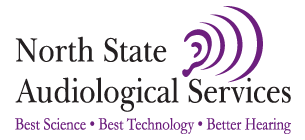Individuals looking for hearing loss treatment face a number of challenges, including medical terms that may be unfamiliar and categories of healthcare professionals that may seem confusing. For instance, what is the difference between an audiologist and a hearing instrument specialist?
Ear Doctors, Audiologists, Hearing Aid Specialists — What’s the Difference?
The types of hearing care professionals you might encounter in seeking help with your hearing loss differ in both their education and their skills:
Audiologists and Doctors of Audiology
An audiologist is a licensed hearing healthcare professional who specializes in the diagnosis and treatment of hearing loss and balance disorders in adults and children. You can think of an audiologist primarily as a “hearing doctor.” Most audiologists have completed a doctor of audiology (Au.D.) degree, though there are other doctoral degrees within the field (Ph.D., Sc.D., and others). Audiologists typically offer the following services:
Complete hearing exams
- Fitting, adjustment, and maintenance of hearing aids
- Treatment for balance disorders and tinnitus (ringing in the ears)
- Hearing and speech rehabilitation programs
Audiologists possess comprehensive knowledge of the human auditory and vestibular systems, and they have extensive training in sound reproduction, which is critical to the accurate fitting and adjustment of hearing aids.
Licensed Hearing Aid Dispensers
A licensed hearing aid dispenser is a hearing care professional licensed by the state of California to sell and fit hearing aids based on simple, non-diagnostic hearing tests. As they are not licensed nor qualified to perform diagnostic evaluations, hearing aid dispensers are not allowed to charge a fee for “testing”. This is why their advertisements often offer free “tests”. However, California consumer protection laws require a disclaimer stating that the “test” is “to determine if you could be be helped by a hearing aid”.
In California, only audiologists are qualified and licensed to perform diagnostic evaluations. Audiologists are also licensed to dispense and fit hearing aids.
Otolaryngologist
Otolaryngologists are physicians (M.D.’s or Doctors of Medicine) who specialize in diagnosing and treating diseases of the ears, nose, mouth, and throat. As opposed to an audiologist, who is more like a “hearing doctor,” you can think of an otolaryngologist as an “ear doctor.” Trained in both medicine and surgery, otolaryngologists treat hearing loss that requires pharmaceuticals or surgery.
After completing a medical course of treatment, otolaryngologists often refer patients to an audiologist for the prescription and fitting of digital hearing aids or counseling to help redevelop communication and language recognition skills.
No matter what type of specialist you decide to see for your hearing needs, the most important factor is the overall experience they provide, which should include a comprehensive approach to diagnosing, treating, and reevaluating your hearing. Partnering with a professional who listens to your needs is critical to the success of your treatment plan.
